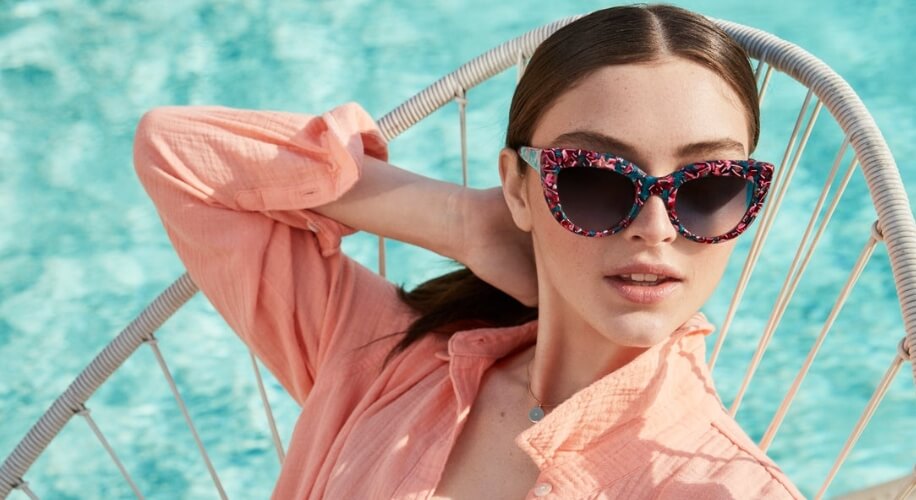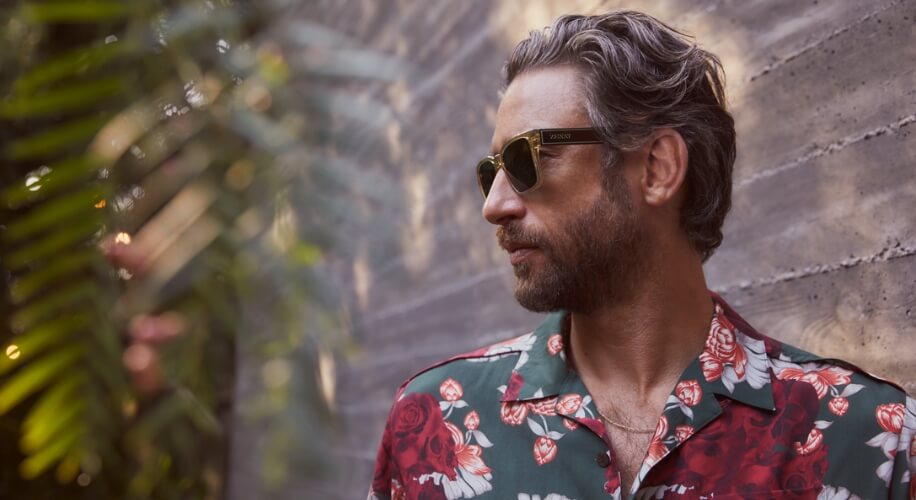Impact of UV Protection in Everyday Eyewear
- BY Dr. Sophia Moh
- IN Eye Care

When selecting a pair of glasses, the frame style and lens prescription often take center stage, but there’s another crucial factor to consider: ultraviolet (UV) protection. UV rays from the sun can pose serious risks to your eye health, and incorporating UV protection into your everyday eyewear is an easy yet powerful way to safeguard your vision.
Shop Frame
Understanding UV Radiation and Eye Health
The sun emits ultraviolet radiation that can be categorized into UV-A and UV-B rays. Both types can harm your eyes in different ways. Prolonged exposure to UV rays can lead to a variety of eye problems, some of which can cause temporary discomfort or even permanent damage, including:
- Cataracts: A clouding of the eye’s natural lens that can blur vision.
- Macular Degeneration: Damage to the retina which can result in the loss of central vision.
- Pterygium: A growth on the white part of the eye that can alter the shape of the cornea and cause astigmatism.
Moreover, the delicate skin around your eyes is susceptible to skin cancer from UV exposure. Thus, wearing eyewear with proper UV protection is not just about comfort—it’s a health necessity.
Shop Frame
Choosing UV Protective Eyewear for Everyday Use
While most are aware of the need for sunglasses during bright, sunny days, UV exposure can occur even on cloudy days or indoors with UV light from artificial sources. That’s why opting for eyewear with built-in UV protection makes a significant difference. Here are some considerations for ensuring your everyday glasses offer the protection you need:
- Look for 100% UV Protection: Ensure that the lenses block 100% of both UV-A and UV-B rays. This is essential for maximum eye protection.
- Add a UV-Blocking Coating: For lenses that don’t come with built-in UV protection, a UV-blocking coating can be applied. This transparent coating allows the lenses to filter out harmful UV rays.
- Don’t Forget the Kids: Children’s eyes are more susceptible to UV damage because they have larger pupils and clearer lenses. Ensure that their eyewear has appropriate UV protection as well.
At Zenni Optical, we understand the importance of UV protection and offer a range of eyewear options designed to keep your eyes healthy and protected. Our easy-to-navigate website allows you to select glasses that suit your style and vision needs with the added assurance of UV safety.
Shop Frame
UV Protection Beyond Sunglasses
While sunglasses are a critical aspect of UV eye protection, especially for activities like driving or outdoor sports, everyday eyewear shouldn’t be overlooked. Photochromic lenses, which darken in response to UV light, provide a convenient alternative for those who frequently move between indoors and outdoors. They offer the comfort of clear lenses indoors and automatically shift to darkened sun lenses outdoors, providing seamless UV protection throughout your day.
Another innovative solution is to combine UV protection with other lens enhancements, such as anti-reflective or blue light blocking coatings. These options can help reduce glare from digital screens and further protect your eyes from harmful light exposure.
Ensuring your vision is clear is only part of the journey to optimal eye health. By making UV protection a priority in your everyday eyewear, you not only enhance your visual comfort but also take a proactive step in preventing long-term eye damage. Explore the variety of UV-protective options at Zenni Optical and enjoy the peace of mind that comes with knowing you’re protecting your eyes every single day.
About the Author: Dr. Sophia Moh, OD, ABOC
Dr. Sophia Moh, OD, is an optometrist based in the Bay Area, California. She holds a doctorate from UC Berkeley School of Optometry and has worked in various eye care settings, including primary care optometry, general ophthalmology, community health clinics, and Veterans Affairs. Dr. Moh is dedicated to improving global vision health by making high-quality, affordable eyewear accessible to all. She is also a certified American Board Optician (ABO) and actively contributes to optical education through training and lectures.



